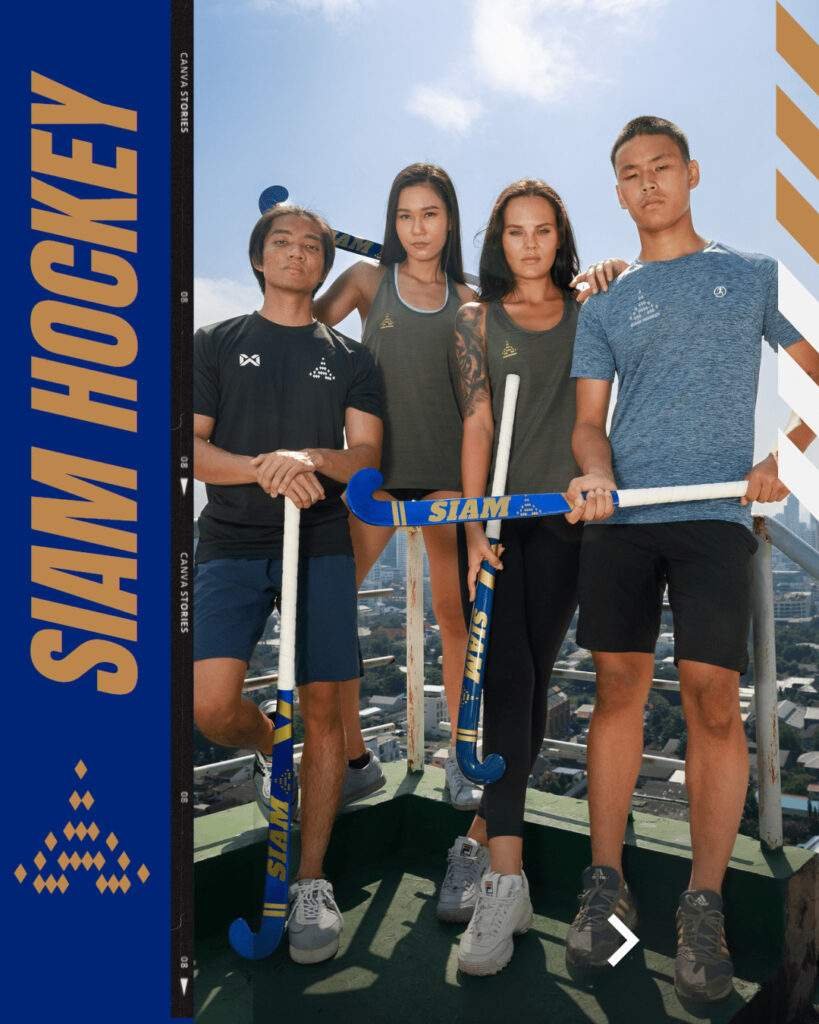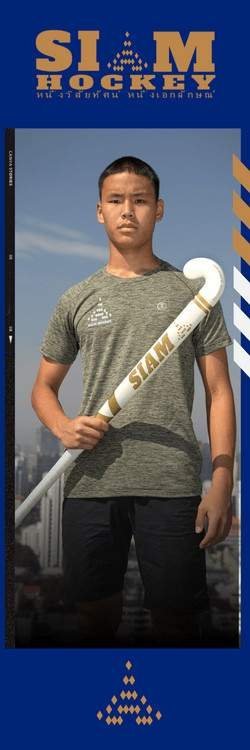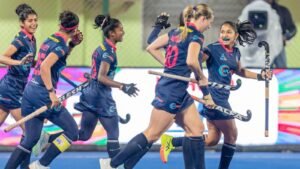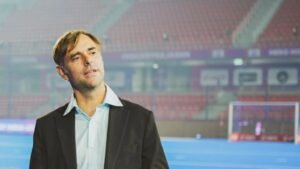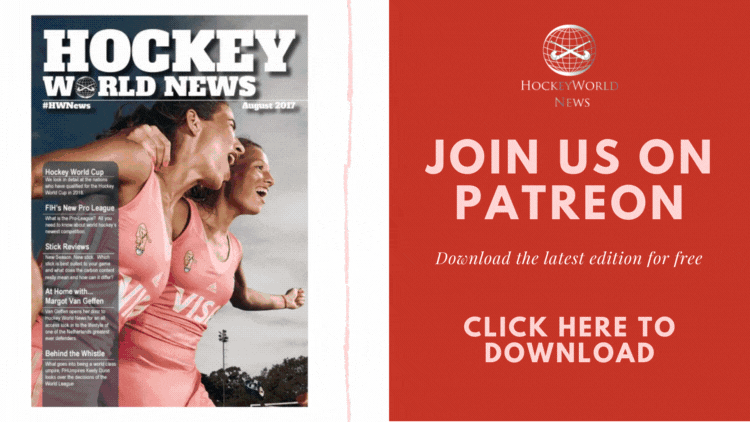At his vacation address in France, Jeroen Hertzberger can finally let the frenzy of the European Championship in Mönchengladbach sink in. The adventure as assistant coach of the French men immediately produced history: a fourth place finish, the best performance since 1970. ‘It was two cool weeks,’ Hertzberger said. ‘I look back on it with great pleasure.’
Earlier this year, the 39-year-old former international was approached by the French federation. The question: whether he wanted to join the staff. The request surprised him. ‘I liked that they asked me, but I did think about it for a few weeks.’ Finally, he tied the knot. ‘I thought it would be interesting to see what contribution I could make.’
So he ended up in the dugout alongside national coach John-John Dohmen, former figurehead of the Belgian team, and the experienced Spaniard Ramon Sala. Together good for almost nine hundred international games. ‘From February I have been with the team,’ Hertzberger says. ‘We communicate with each other in a mixture of French and English. Words and the field hockey language I pick up quickly. But in one-on-one conversations with players and conveying emotions, you have to know exactly what you’re saying. That takes time. I do my presentations in both French and English. I also learn from that. Actually it is a language course and coaching function in one.’
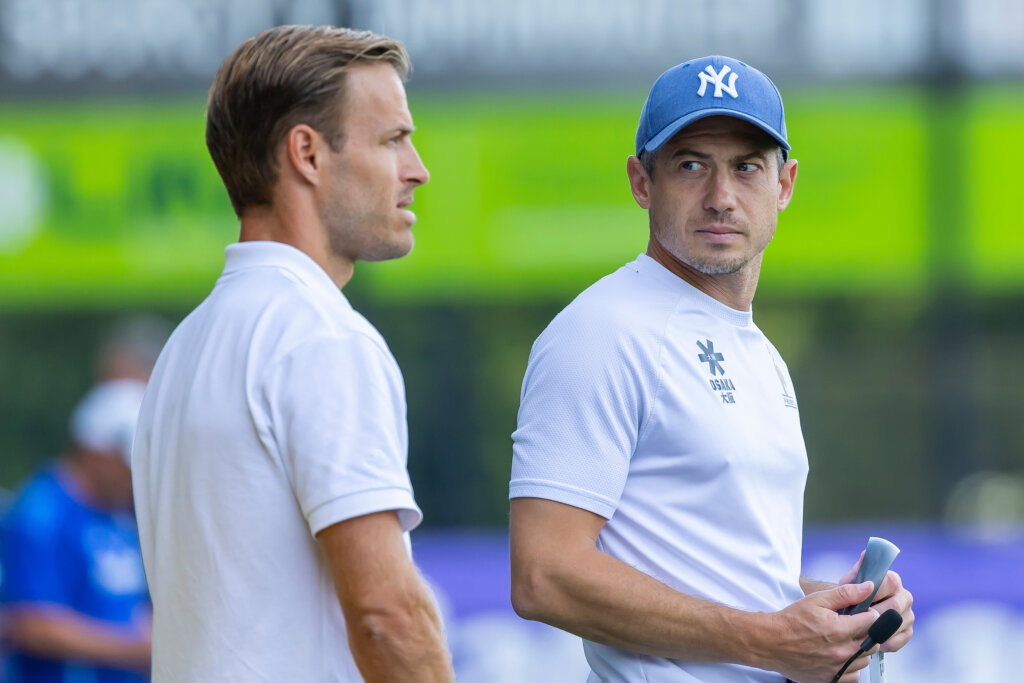
Jeroen Hertzberger and John-John Dohmen, national coach of France. Photo: Willem Vernes
Focus on offensive part
During the national anthems at the European Championship, Hertzberger stood arm in arm next to Dohmen and Sala. A striking image: no longer the striker who wants to score himself, but the coach who teaches his strikers how to do it. ‘Ramon focuses more on the build-up from his own half, I am responsible for the play from the center line towards the circle. How do we put pressure, how do we position the strikers, how do we make the offensive play more profitable?’
But his role goes beyond tactics. ‘The biggest challenge is getting the players to realize how good they actually are. Often fear comes into play: the idea that something is not going to work anyway. You then have to have the courage to try anyway. Self-confidence and courage can make the difference between losing 4-1 or playing 2-2. The French are a proud people. If you couple that pride with courage, you can compete with the top countries.’
As an example, he cites the last pool match against England. France won 3-2, thanks to a goal by Timothée Clément two seconds before time. It earned a spot in the semifinals, for the first time in more than half a century. ‘A year ago we would have lost such a game 4-1,’ Hertzberger said. ‘Now the statistics were in our favor. It might as well have been 4-1 for us. The boys made their own history.’
The Netherlands then barred their way to the final, losing to Spain in the battle for bronze. ‘That match against Spain was our least,’ Hertzberger acknowledged. ‘For the first time, we had something to lose. That caused restraint. In top sport, you don’t get anything for free. You need a certain feeling to really compete for the medals. They are valuable lessons.’
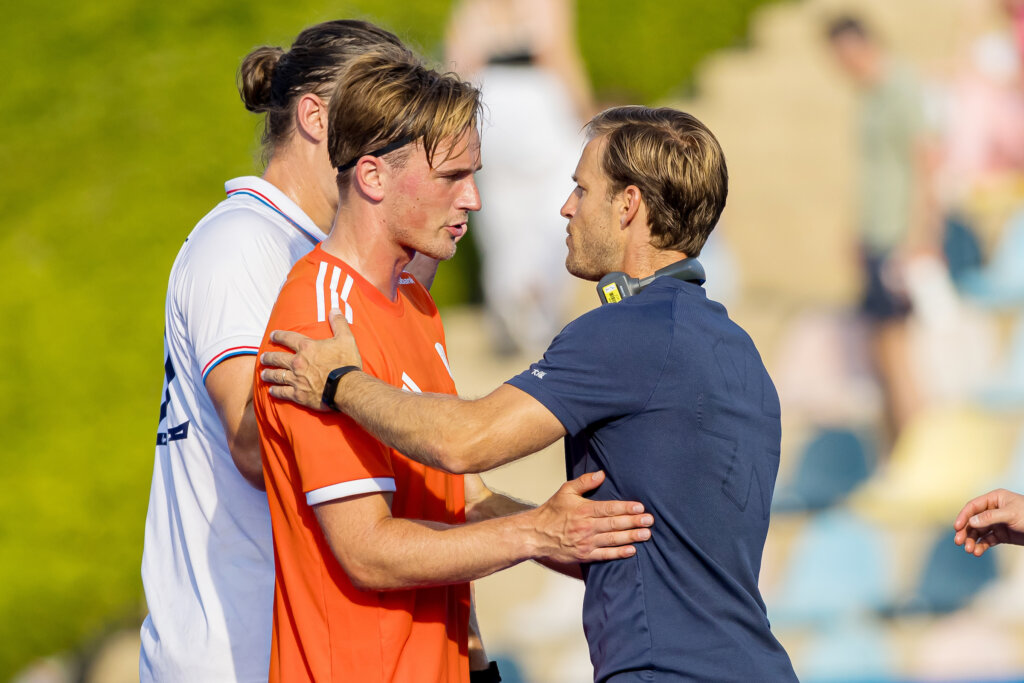
Jeroen Hertzberger congratulates Jorrit Croon on reaching the final of the European Championship in Mönchengladbach. Photo: Willem Vernes
EC surprise
With fourth place, France emerged as the surprise of the EC. Goalkeeper Corentin Saunier was named best goalkeeper of the tournament, 18-year-old Malo Martinache best player under 21. Penalty corner specialist Victor Charlet, good for four goals, finished just two goals behind tournament top scorer Gonzalo Peillat.
But behind the successes is another reality. Whereas Hertzberger was used to perfectly arranged facilities during his time with the Orange, he faces limitations in France. ‘We have maybe a sixth of the budget of the Netherlands. No money for ice baths, hardly any balls, eating out is often out of the question. The technical director took the night bus to Mönchengladbach because the train was too expensive. Sometimes a training trip is planned but still cancelled. That requires a lot of sacrifice. But somewhere I also find that very beautiful.
Hertzberger has taken the first steps in what he himself describes as a voyage of discovery into his future. ‘So far, I’m enjoying it immensely.’ During the voyage of discovery, he remains active as a player. No longer at the highest level. ‘I will play with my brother Maurits in the veterans of Rotterdam.’
His contract with the French federation runs through World Cup qualification in March 2026. ‘If we qualify, it can be extended up to and including the World Cup. I am convinced we will be there.’
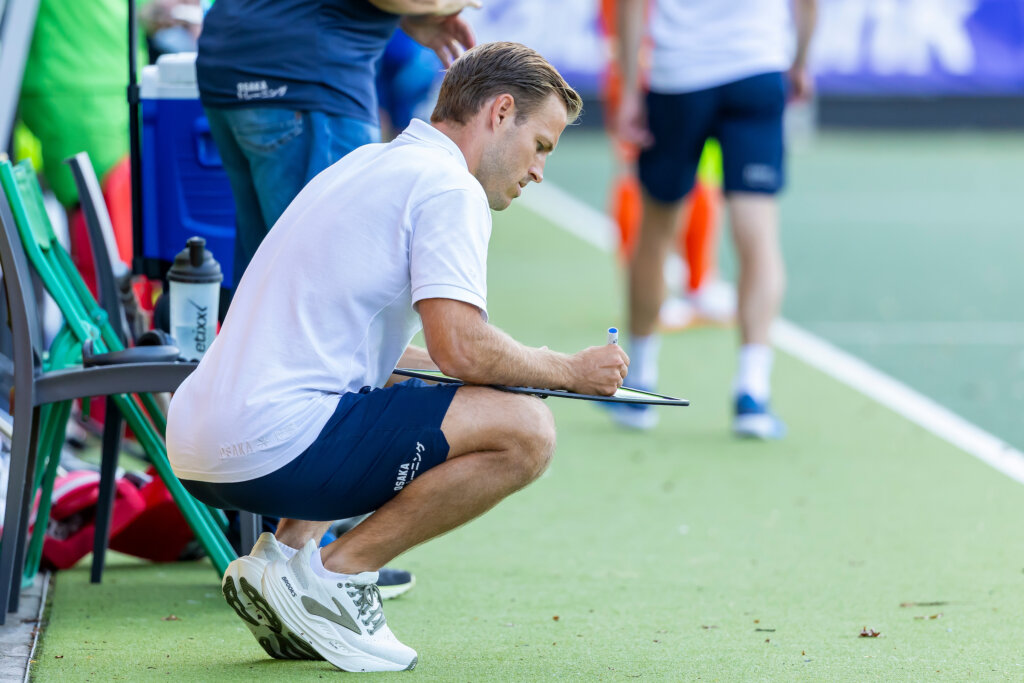
Jeroen Hertzberger in action along the line. Photo: Willem Vernes
by Hockey.nl

